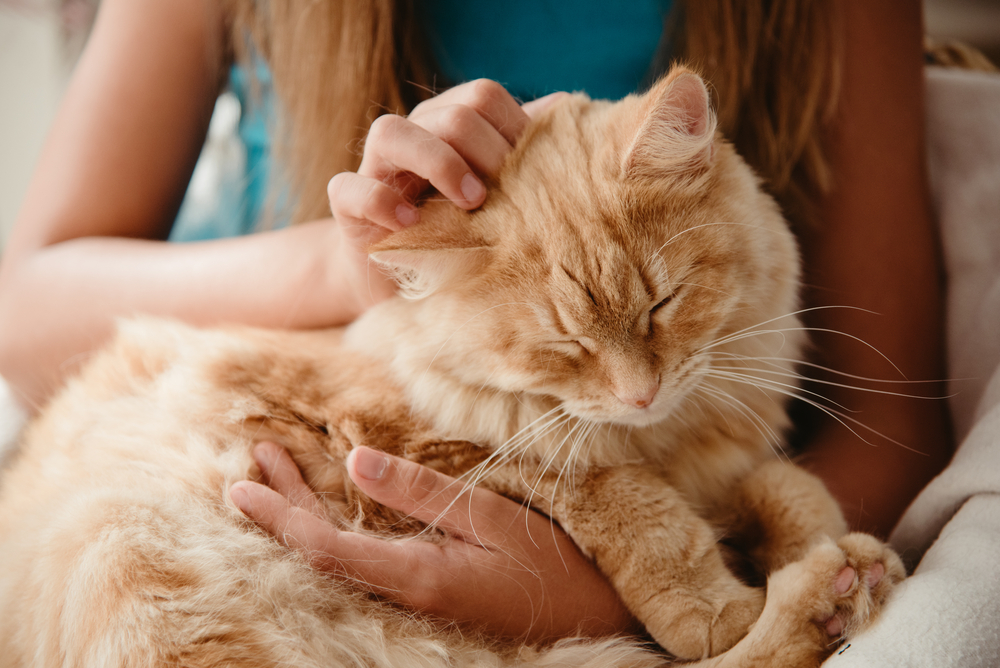As your pet grows older, you need to monitor their well-being to ensure they maintain a high quality of life. Like people who are aging, senior pets may experience changes in health and behavior that require special attention and care. To help you navigate this journey through your pet’s golden years, our Animal Care & Emergency Services team has compiled a comprehensive guide to assist you in assessing your senior pet’s quality of life.
Question: How can I assess my senior pet’s quality of life?
Answer: Assessing your senior pet’s quality of life involves monitoring various aspects of their physical health, behavior, and overall well-being. Consider the following factors:
- Physical health — Keep an eye on your pet’s mobility, appetite, weight, and any pain or discomfort signs. Regular veterinary exams can help detect underlying health issues before they become severe.
- Behavioral changes — Be on the lookout for any changes in your pet’s behavior such as increased aggression, anxiety, confusion, or disorientation. These could be cognitive decline signs or other medical issues.
- Joy and engagement — Observe whether your pet still enjoys activities they once loved such as playing, going for walks, or socializing with other pets or family members. Disinterest in these activities may indicate a decrease in your pet’s quality of life.
- Hygiene and self-care — Pay attention to your pet’s grooming habits and ability to perform basic self-care tasks. Any decline in these areas may signal underlying health issues or mobility problems.
Q: What should I do if I notice changes in my senior pet’s quality of life?
A: If you notice any concerning changes in your senior pet’s quality of life, consult your family veterinarian promptly. They can conduct a thorough examination, perform diagnostic tests, and provide recommendations for managing your pet’s health and comfort. Depending on the underlying issues identified, your veterinarian may recommend dietary changes, pain management strategies, supplements, physical therapy, or medications to improve your pet’s quality of life.
Q: Can I use any specific tools or assessments to evaluate my senior pet’s well-being?
A: While no standardized assessments exist for evaluating a pet’s quality of life, several tools and resources can help you track changes and communicate effectively with your primary veterinarian. These include:
- Quality of life scales — A quality of life scale or questionnaire can help you assess various aspects of your pet’s well-being.
- Daily journals — Keeping a daily journal on your pet’s behavior, appetite, activity level, and any notable changes can help you track patterns over time and provide valuable information to your veterinarian.
- Mobile apps — Mobile apps allow you to track your pet’s health metrics, medication schedules, and appointments, helping you stay organized and monitoring changes in their well-being.
Q: How can I ensure my senior pet remains comfortable and happy in their golden years?

A: Providing a comfortable and enriching environment is essential for ensuring your senior pet experiences a good quality of life. Consider the following tips:
- Create a comfortable living space — Ensure your pet has a warm, quiet, and easily accessible place to rest. Provide supportive bedding and ramps or steps to help them navigate furniture if they have mobility issues.
- Feed a proper diet — Feed your senior pet a balanced diet formulated for their age and specific health needs. Consult your veterinarian for dietary recommendations tailored to your pet’s individual requirements.
- Encourage regular exercise — Encourage gentle exercise appropriate for your pet’s age and physical condition. Short walks, gentle play sessions, or low-impact activities can help maintain your pet’s mobility and mental enrichment.
- Schedule veterinary care — Schedule regular veterinary exams to monitor your pet’s health and address any concerns promptly. Vaccinations, parasite control, dental care, and preventive screenings are essential for senior pets.
Senior pets often develop complex or chronic conditions that can be challenging to diagnose or manage and may deteriorate rapidly. Reach out to our Animal Care & Emergency Services team if your senior pet needs care on an emergency basis.







Leave A Comment